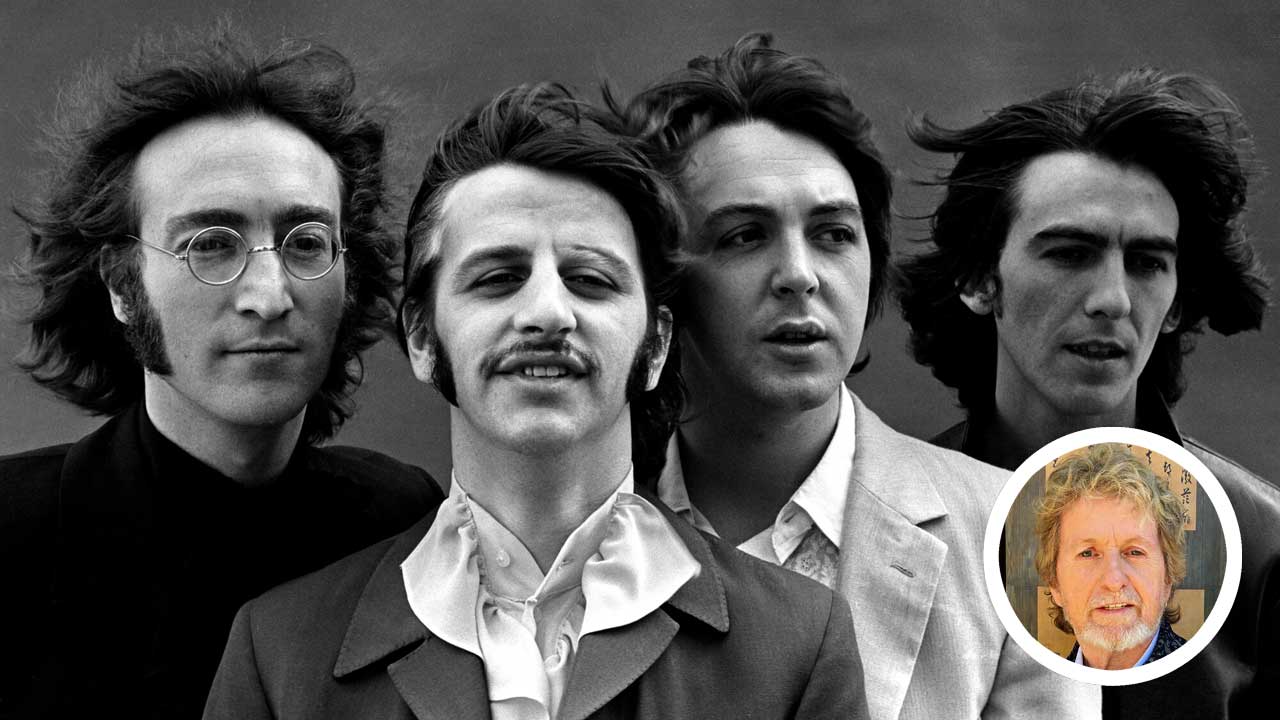
"I was in a brothel in Hamburg when I first heard Tomorrow Never Knows. The place was called the Top Ten Club: seven storeys of mayhem, where I was playing and staying with my first band, The Warriors. It was when I put Revolver on in that brothel, and got to the end of side two and heard Tomorrow Never Knows, that I realised that The Beatles weren’t just a rock’n’roll band. That song stands out as their most sonically and lyrically adventurous departure from everything I’d ever heard. It was like listening to music for the first time.
"Listening to it then in 1966, you don’t know how they did it. You’ve got no concept of how they put it together, and how they came up with the lyrics, or any of it. Tomorrow Never Knows had an effect on me, and on everybody, because it was so revolutionary.
"Me and the other musicians I knew then looked to The Beatles as the leaders of what to do next anyway. They were the only ones to show that you could progress as a band. Everyone else was just doing commercial pop. The Hollies were great, and the Moody Blues, and the Stones, of course. But they were just doing R&B and pop. The Beatles, with the help of George Martin, changed the culture of music. They started a chain reaction in those other bands’ music. And after Tomorrow Never Knows, they just got better.
"Sgt. Pepper was a ridiculously great move in a direction that no one had even perceived before. It was an amazing showcase of music, with an audience you could hear cheering and clapping it all. Its musical structure, its musical identity, its production and its arrangements blew my mind. It blew the world of music apart. You can have no idea if you weren’t around then.
"We were in Hamburg again when I bought it, and we played it endlessly, for months. You’d go out and have something to eat, and you’d come back and you’d play it again – five times, every time. It’s impossible to put into words what it felt like hearing its last song, A Day In The Life, for the first time. It was just like a big door opening. All you could say was, “What the hell?”
"I was taking acid at the time, so I was on another planet anyway. I still am on that planet where The Beatles put me then. Sgt. Pepper was also part of an extraordinary moment in time. It was as if reality had changed musically, and the whole concept of how we live and what we live for was changing, too. Everyone was into drugs and rock’n’roll and free love and peace. It was a ridiculous time for a young person, and especially a musician.
"We realised that anything, from that moment onwards, was possible. That’s why Yes created what we created. Because we realised that we didn’t have to rely on radio play, we didn’t have to rely on anything but music. That was with the help of The Beatles opening that incredible door. They were the gods of rock’n’roll. They were the leaders of everything, and everybody else slowly followed, and woke up a little bit. Afterwards, nothing compared to Sgt. Pepper.
"The Beatles peaked then. When I listened to the White album or Let It Be, I always felt: “Sgt. Pepper – thank God they did that.” I was never disappointed with The Beatles, except when they broke up. But they’d already broken the mould. Changing the world once was enough."
"The Beach Boys, Buffalo Springfield, Miles Davis, and electronic musicians like Walter Carlos, too. There had been so much music in ’66, ’67 and ’68 that had nothing to do with anything but being inventive. But it was The Beatles who were the gods of rock and everything.
"Yes were constantly influenced by them. Abbey Road’s whole second side being one complete idea was what inspired me to do long-form pieces of music. They showed us that you can do anything. That it’s got nothing to do with the business or pop music or money. That if you can do it with love, heart and honesty, it’ll work."
Jon Anderson was speaking with Nick Hasted. This feature originally appeared in Classic Rock 202, in October 2014. The Beatles' Red and Blue compilations are out now.







